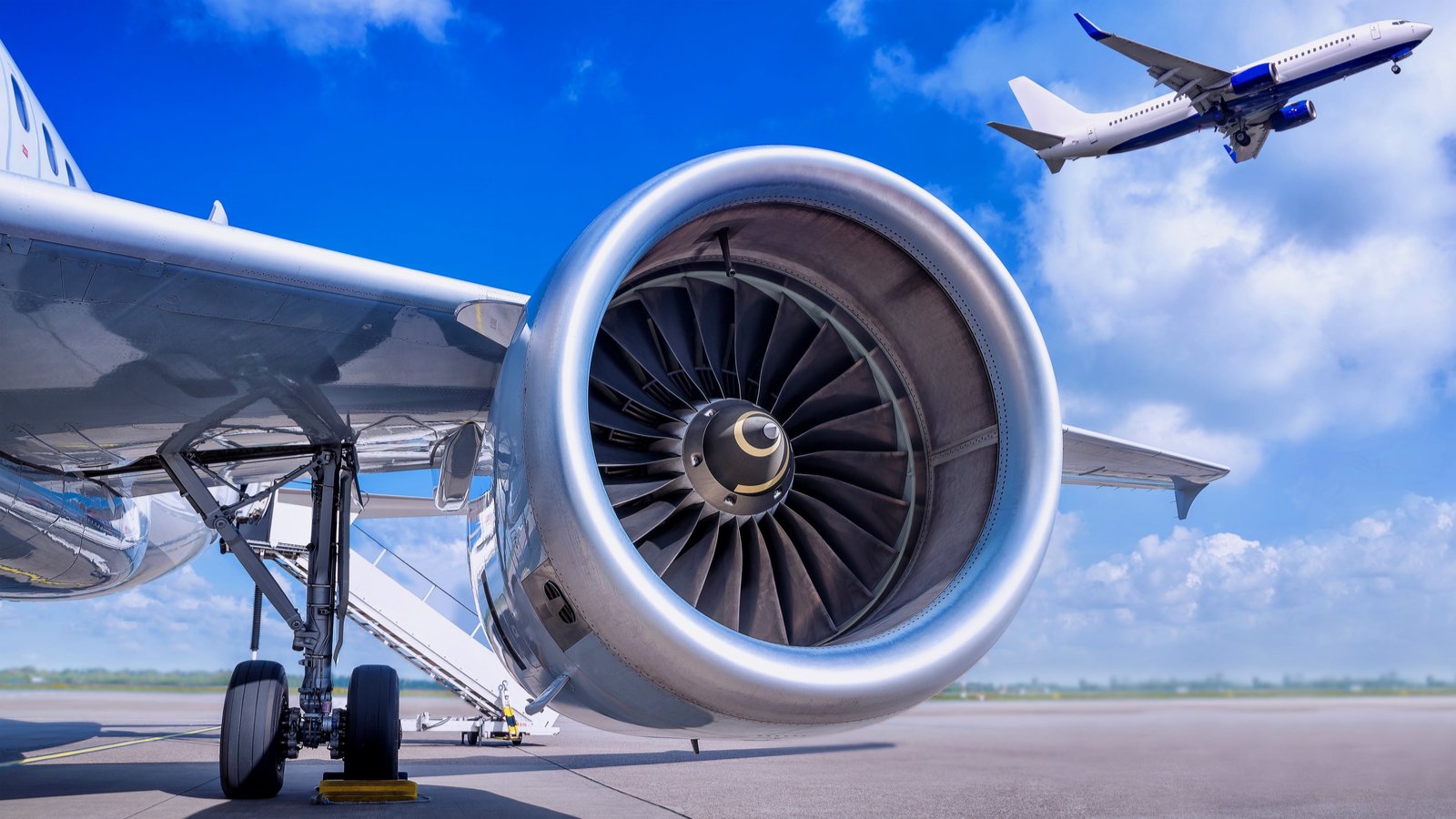The novel coronavirus pandemic has swept away the airline industry with an estimated industry loss of $84 billion. Airline stocks have taken a hammering this year, compelling major investors to dump their stakes in the sector.
Recovery remains sluggish primarily due to the repressed international traffic, which was expected to pick up in the third and fourth quarters. However, with lockdown restrictions in several countries and travelers subject to strict quarantine rules, such an outcome was on the cards.
Some airline companies, though, have struggled more than others due to invariable reasons. Those who have been somewhat successful have effectively managed their liquidity position through belt-tightening and other measures. However, some airline companies were already struggling before the crisis intensified their troubles.
Let’s look at seven airline stocks that are seriously hurting and fighting for their survival:
- United Airlines (NASDAQ:UAL)
- Hawaiian Holdings (NASDAQ:HA)
- American Airlines (NASDAQ:AAL)
- Delta Airlines (NYSE:DAL)
- Copa Holdings (NYSE:CPA)
- Ryanair Holdings (NASDAQ:RYAAY)
- Spirit Airlines (NYSE:SAVE)
Airline Stocks to Sell: United Airlines (UAL)
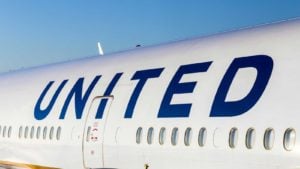
United Airlines has done well to fend off its liquidity crisis amid the pandemic, but its profitability seems way-off. Additionally, with its belt-tightening measures, it would have to incur massive capital expenditures in extending its fleet’s lives in the near future. With a debt of roughly $30 billion, investors should forget about dividends until 2026. All that’s led to a more than 50% decline over the last 12 months in the UAL stock price.
The recent third-quarter earnings report highlights the tough challenges faced by the company at this time. Revenues tanked 78% year-over-year with a 70% reduction in capacity. The load factor was only at 47.8%. Net loss was at a whopping $1.8 billion, with its Q4 cash burn expected to be around $15 million to $20 million. As demand is expected to remain sluggish for the foreseeable future, I expect things to be rocky for UAL for some time.
Hawaiian Holdings (HA)

Hawaiian Holdings is a company providing air transportation services for cargo and passengers among Hawaii and several West Coast gateway cities. Similar to other companies involved in the business, it’s been a hellish year so far for the company.
It did relatively well in managing its liquidity, but its debt to equity is 120% higher than its 10-year median. Moreover, HA stock’s near 40% decline over the last 12 months has left the shares stuck at the gate as the S&P 500 index flew 14.3% in that time period.
It recently reported significant losses in the third quarter. Revenues have fallen off the way-side this year, and Q3 was no different with a 90% drop. Moreover, adjusted net income came in $254.1 million lower than the same period last year. The management has guided towards a 70% drop in revenues in the fourth quarter. Despite its best efforts, debt is still at a massive $1.3 billion. Therefore, it’s a rough flying ahead for the company to pull itself back up anytime soon.
American Airlines (AAL)
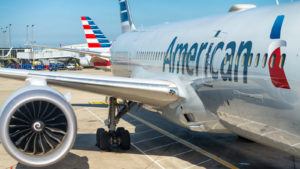
American Airlines is one of the biggest names in aviation but has been underperforming for quite some time. For instance, its operating and gross margins have been declining since 2015. Additionally, it has struggled to impress across a range of financial metrics for the past five years. Covid 19 has intensified its woes, which has even led to chatter about a potential bankruptcy. AAL stock is down 40% in the past year.
It recently reported its lackluster Q3 results where revenues dropped by roughly 73% year-over-year. Though it delivered an earnings beat in the quarter, its loss per share is still significant, $5.54. What’s more disconcerting is its liquidity position, as its $44 million cash burn far exceeds its competition.
Moreover, it has the lowest cash balance relative to its size. This is also indicated in its debt to equity ratio of 4.7, roughly 90% higher than its 10-year median. Therefore, the outlook appears especially bleak for AAL at this time.
Delta Airlines (DAL)
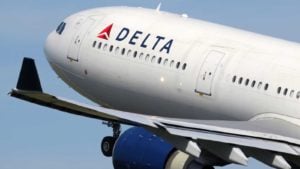
Delta Airlines is one of the three top legacy carriers in the U.S. The company was making good progress before the pandemic kicked in. However, the health crisis has seriously harmed its earnings power. Hence, DAL stock has taken a beating, and its 32% decline in the past 12 months shows it.
Delta’s revenues tanked 75.6% from July to September. Moreover, its GAAP EPS of $8.47 came in significantly lower than estimates of $5.74. Its load factor of 41% was below the consensus estimates of 48.5%.
Its expense management has been impressive, though, which has slowed down its cash burn rate. However, its growing debt load in excess of $40 billion debt load has sky-rocketed its debt to equity ratio to 12.3. Hence, its investors should forget about dividends for the foreseeable future.
Copa Holdings SA (CPA)
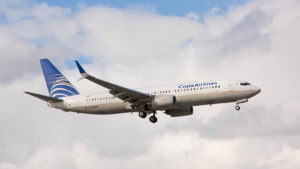
Prior to the pandemic, Copa Holdings was among the best performing airlines in the Latin American region. However, Covid-19 pushed reset button on all of the company’s progress in the past few years. Hence, CPA stock is down almost 30% over the last 12 months.
Its third-quarter report shows listless progress toward returning to pre-pandemic levels. Revenues are down 95.4% year-over-year with a net loss of $118.1 million against a $104 million profit in the prior-year period.
However, the company has done well to preserve its liquidity despite its bleeding a significant amount of cash. Its cash burn rate is down to $36 million, from $77 million in the second quarter. However, with the socio-economic challenges faced by Latin American countries, it will be tough to recover compared to its peers.
Ryanair Holdings (RYAAY)
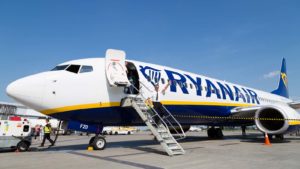
Low-cost European airline Ryanair Holdings has had a rough year in line with the rest of the sector. However, its inflexible business model, which focuses mainly on passengers, continues to be a focal point for its bear case. Therefore, RYAAY stock is one of the more risky names to hold at this time.
Despite the challenges, though, it has held up well in comparison to its peers. Still, revenues are down more than 60% year-over-year in its most recent quarter. It operated only 50% of its normal schedule with a 62% drop in traffic from the prior-year period. Hence, it posted a net loss of 12 cents compared to a profit per share of $4.51 in the same period last year.
Though its cash position is relatively strong, its one-year debt-to-revenue growth rate is massive 272%. Therefore, though things seem somewhat better for Ryanair, its outlook will remain challenging for the foreseeable future.
Spirit Airlines (SAVE)
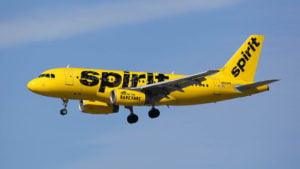
Ultra-low-cost carrier Spirit Airlines has been one of the best performing airlines in the past few years. The pandemic has severely dented its progress, though, leading to a massive decline in revenues. Hence, SAVE stock’s returns are down 38% for the year.
Spirits revenues plummeted 86% and 59.5% in the second and third quarter, respectively. It recorded a net loss of $99 million in its latest quarter, taking its net loss for the year to $271 million. Moreover, its one-year debt growth is at 274% with a debt to equity ratio of 2.03, which comfortably exceeds its 10-year median. It’s currently one of the riskiest plays in the airline sector but has excellent potential to bounce back from the crisis.
On the date of publication, Muslim Farooque did not have (either directly or indirectly) any positions in the securities mentioned in this article
